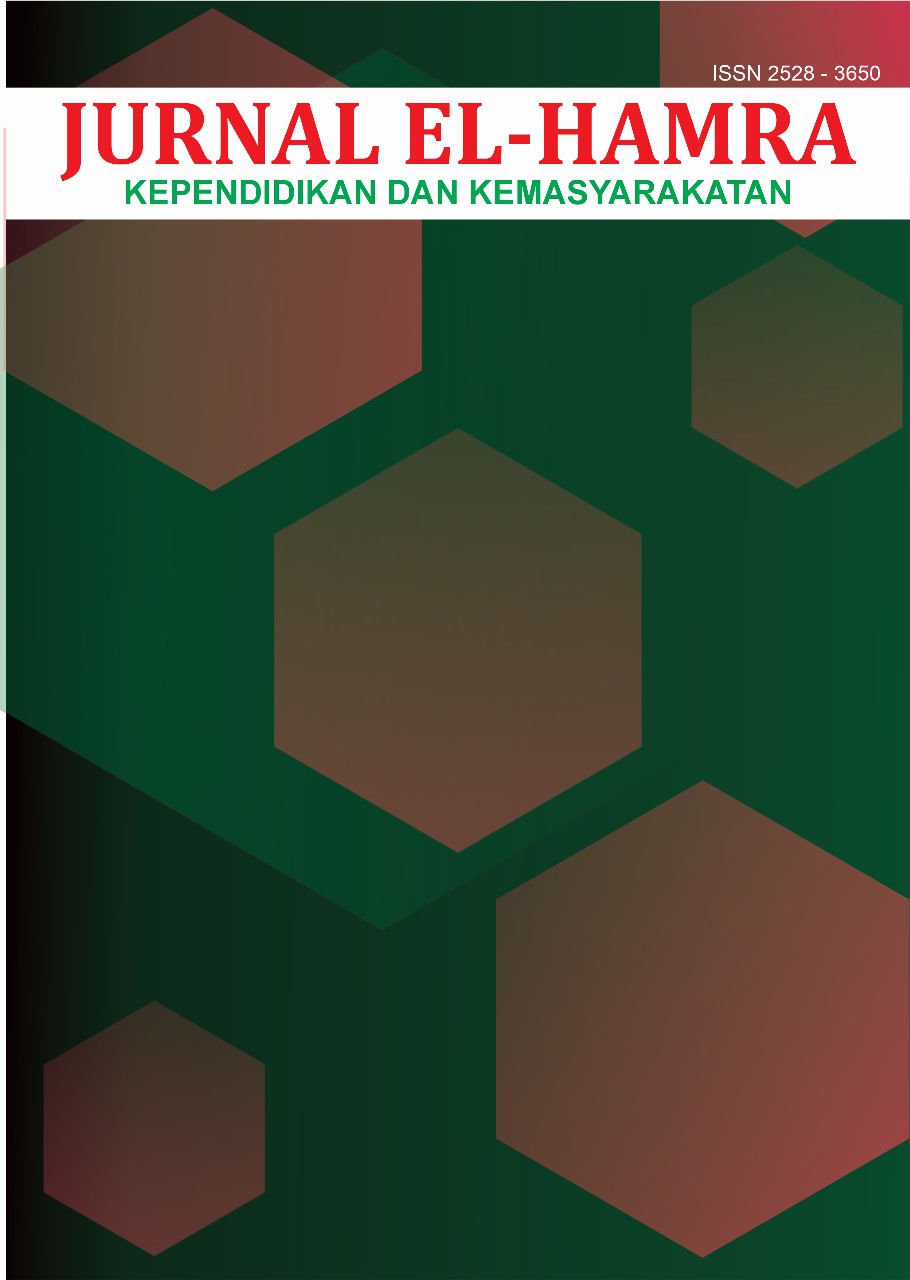Efforts to Improve the English Test Reliability in SMP Negeri 1 Manisrenggo Klaten
DOI:
https://doi.org/10.62630/elhamra.v9i2.183Keywords:
Reliability, Bahasa Inggris, tes,Abstract
This study aims to attempt to improve the reliability of English language tests. The qualitative research focused on the results of the English reliability test in the ninth grade of SMP Negeri 1 Manisrenggo Klaten. The study's results were analyzed and discussed in depth to find implications and contributions to efforts to improve the reliability of English tests, especially in grade nine. This study found reliability issues such as Student-Related Reliability, Rater Reliability, Test Administration Reliability, and Test Reliability Efforts to improve English test reliability at SMP N 1 Manisrenggo School, Klaten, can be enhanced by focusing on test content reliability.
keyword: Reliability, English language, test
Penelitian ini bertujuan untuk Upaya meningkatkan reliability tes bahasa Inggris . Metode penelitian yang digunakan adalah qualitatif, dengan fokus pada hasil test bahasa Inggris pada kelas Sembilan SMP Negeri 1 Manisrenggo Klaten. Hasil penelitian dianalisis dan dibahas secara mendalam untuk menemukan implikasi dan kontribusi terhadap Upaya meningkatkan keandalan tes bahasa Inggris terutama pada kelas sembilan. Pada penelitian ini ditemukan masalah reability seperti Reliabilitas Terkait Siswa, Reliabilitas Rater, Reliabilitas Administrasi Tes, dan Reliabilitas Tes Upaya untuk meningkatkan reliabilitas tes bahasa Inggris di Sekolah SMP N 1 Manisrenggo, Klaten, dapat ditingkatkan dengan memfokuskan pada reliabilitas isi tes.
Kata kunci: Reliability, Bahasa Inggris, tes
References
Alharbi, H. A. (2015). Improving Students’ English Speaking Proficiency in Saudi Public Schools. International Journal of Instruction, 8(1), 105–116.
Amalia, K. (2020). AN ANALYSIS ON THE STUDENTS’ERROR IN USING IRREGULAR VERB OF THE NINTH GRADE OF MTS AL-HIKMAH BANDAR LAMPUNG AT THE SECOND SEMESTER IN THE ACADEMIC YEAR OF 2019/2020. UIN Raden Intan Lampung.
Boone, W. J. (2016). Rasch analysis for instrument development: Why, when, and how? CBE—Life Sciences Education, 15(4), rm4.
Clipa, O., & Boghean, A. (2015). Stress factors and solutions for the phenomenon of burnout of preschool teachers. Procedia-Social and Behavioral Sciences, 180, 907–915.
Cypress, B. S. (2017). Rigor or reliability and validity in qualitative research: Perspectives, strategies, reconceptualization, and recommendations. Dimensions of Critical Care Nursing, 36(4), 253–263.
Deegan, G. M. (2014). Distributed instructional leadership and student achievement at an urban school. Grand Canyon University.
Ertürk, N. O. (2015). Testing your tests: Reliability issues of academic English exams. International Journal of Psychology and Educational Studies, 2(2), 47–52.
Irene, I., & Wisesa, A. (2020). Analyzing How Spiritual Intelligence Affecting Stress Coping in Stress Management. Jurnal Ilmu Sosial Politik Dan Humaniora, 3(2), 1–12.
Livingston, S. A., Carlson, J., & Bridgeman, B. (2018). Test reliability-basic concepts. Research Memorandum No. RM-18-01). Princeton, NJ: Educational Testing Service, 8.
Lund, J. L., & Kirk, M. F. (2019). Performance-based assessment for middle and high school physical education. Human Kinetics Publishers.
Moskal, B. M., & Leydens, J. A. (2019). Scoring rubric development: Validity and reliability. Practical Assessment, Research, and Evaluation, 7(1), 10.
Noble, H., & Smith, J. (2015). Issues of validity and reliability in qualitative research. Evidence-Based Nursing.
Shohamy, E. (2020). The power of tests: A critical perspective on the uses of language tests. Routledge.
Downloads
Published
Issue
Section
License
Copyright (c) 2024 Efendi Hidayatullah

This work is licensed under a Creative Commons Attribution 4.0 International License.
Penulis yang karyanya diterbitkan dalam Jurnal El-Hamra : Kependidikan dan Kemasyarakatan wajib menyetujui persyaratan berikut:
1. Hak Cipta dan Lisensi:
- Penulis tetap memegang hak cipta atas karyanya.
- Penulis memberikan hak publikasi pertama kepada jurnal.
- Karya yang diterbitkan dilisensikan di bawah a Creative Commons Attribution 4.0 International License (CC BY 4.0). Lisensi ini mengizinkan pihak lain untuk berbagi karya dengan mengakui kepenulisan dan publikasi awal dalam jurnal ini.
2. Distribusi Non-Eksklusif:
- Penulis diizinkan untuk membuat perjanjian kontrak tambahan yang terpisah untuk distribusi non-eksklusif dari versi jurnal yang diterbitkan.
- Contoh distribusi non-eksklusif:
- Menyimpan karya di repositori institusional.
- Menerbitkan karya dalam buku.
- Dalam setiap bentuk distribusi non-eksklusif, pengakuan atas publikasi awal dalam jurnal ini wajib dicantumkan.
3. Publikasi Online:
- Penulis diizinkan dan didorong untuk memposting karya mereka secara online sebelum dan selama proses penyerahan.
- Contoh platform publikasi online:
- Repositori institusional.
- Situs web pribadi.
- Publikasi online karya sebelum dan selama proses penyerahan diharapkan dapat:
- Meningkatkan pertukaran informasi yang produktif.
- Meningkatkan kutipan dan jangkauan karya yang diterbitkan.







